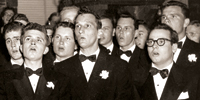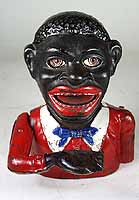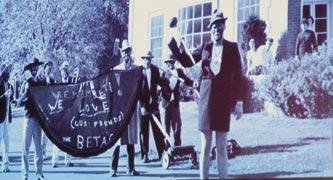Cops in America are heavily armed and trained to be bullies, and they routinely hurt people who are not posing any serious threat to anyone, in order to make sure that they stay in control of the situation
. They have no trouble electrifying small children, alleged salad-bar thieves; or pregnant women possibly guilty of a minor traffic violation, if they get tired enough of being talked back to and if their bellowed orders are no longer sufficient to end an argument–even without any plausible reason whatsoever for fearing any physical threat to themselves or others. When they are caught in the act police administrators will wring their hands, make up some lies to try to excuse the assault, promise an investigation, find that Official Procedures were followed, and then do nothing at all, except perhaps question the decision to arm the pigs with tasers (as if the equipment were the issue here). This is a cellphone video of what happened to UCLA student Mostafa Tabatabainejad when he refused to show identification to campus police and then demanded that they not touch him while he left the library.
(Link and story via Brian Doherty @ Reason Hit and Run 2006-11-16.)
Here is the story from The Los Angeles Times:
The latest in a recent spate of cellphone videos documenting questionable arrest tactics
surfaced Wednesday, this one showing a UCLA police officer using a Taser to stun a student
who allegedly refused to leave the campus library.
Grainy video of the Tuesday night incident at UCLA’s Powell Library was broadcast
Wednesday on TV news and the Internet, prompting a review of the officers’ actions and
outrage among students at the Westwood campus.
The footage showed the student, Mostafa Tabatabainejad, falling to the ground and crying out
in pain as officers stunned him.
According to a campus police report, the incident began when community service officers,
who serve as guards at the library, began their nightly routine of checking to make sure
everyone using the library after 11 p.m. is a student or otherwise authorized to be there.
Campus officials said the long-standing policy was adopted to ensure students’ safety.
When Tabatabainejad, 23, refused to provide his ID to the community service officer, the
officer told him he would have to show it or leave the library, the report said.
After repeated requests, the officer left and returned with campus police, who asked
Tabatabainejad to leave multiple times,
according to a statement by the UCLA Police
Department.
He continued to refuse,
the statement said. As the officers attempted to escort
him out, he went limp and continued to refuse to cooperate with officers or leave the
building.
Witnesses disputed that account, saying that when campus police arrived, Tabatabainejad
had begun to walk toward the door with his backpack. When an officer approached him and
grabbed his arm, the witnesses said, Tabatabainejad told the officer to let go, yelling Get
off me
several times.
Tabatabainejad encouraged library patrons to join his resistance,
police said. The
officers deemed it necessary to use the Taser.
Officers stunned Tabatabainejad, causing him to fall to the floor.
The video shows Tabatabainejad yelling, Here’s your Patriot Act, here’s your … abuse of
power,
the Daily Bruin reported, adding he used a profanity.
It was beyond grotesque,
said UCLA graduate David Remesnitsky of Los Angeles,
who witnessed the incident. By the end they took him over the stairs, lifted him up and
Tasered him on his rear end. It seemed like it was inappropriately placed. The Tasering was
so unnecessary and they just kept doing it.
Campus police confirmed that Tabatabainejad was stunned multiple
times.
By then, Remesnitsky said, a crowd of 50 or 60 had gathered and were shouting at the
officers to stop and demanding their names and badge numbers.
Remesnitsky said officers told him to leave or he would be Tasered.
Tabatabainejad declined to comment. He was arrested Tuesday night and cited by campus
police for resisting and obstructing a police officer and was released.
The incident was the third videotape of an arrest to surface in the last week in Los Angeles.
One video showed a Los Angeles Police Department officer dousing a handcuffed suspect in
the face with pepper spray as the suspect sat in a patrol car.
That video came to light Monday, just days after the LAPD and the FBI launched
investigations into another videotape showing a police officer hitting a suspect in the face
several times after a foot chase in Hollywood.
UCLA Assistant Police Chief Jeff Young said Wednesday that he had viewed the video of the
campus incident on the Internet and would view any other videos that were shot.
We will gather as many samples as we can find, from different sources,
Young said.
We’ll use it for our own administrative investigation.
— Amanda Covarrubias and Stuart Silverstein, Los Angeles Times (2006-11-16): A third incident, a new video
Here is the campus police’s military necessity justification for repeatedly electrifying an unarmed man already lying on the ground and offering no physical resistance, let alone physical threat, to the armed and uniformed gang of peace officers
surrounding him:
Tabatabainejab encouraged library patrons to join his resistance. A crowd gathering around
the officers and Tabatebainejad’s continued resistance made it urgent to remove
Tabatabainejad from the area. The officers deemed it necessary to use the Taser in a
drive stun
capacity.
— University of California Police Department (2006-11-15): Powell Library Incident
The Powell Library is university property, and authorized agents of the university have every right to force out someone who does not use the library according to the policies set by the university. What they have no right to do is to carry out those aims by repeatedly using powerful electric shocks to immobilize a helpless man with pain, over and over again, when he is already lying on the ground, solely in order to keep control of the situation or to ensure students’ safety
when the students themselves feel far more threatened by the belligerent and violent police. Whether or not they found it necessary
to torture Tabatabainejab with electric shocks in order to accomplish those things is quite irrelevant. As Edmund Burke once wrote,
To prove, that these Sort of policed Societies are a Violation offered to Nature, and a
Constraint upon the human Mind, it needs only to look upon the sanguinary Measures, and
Instruments of Violence which are every where used to support them. Let us take a Review of
the Dungeons, Whips, Chains, Racks, Gibbets, with which every Society is abundantly
stored, by which hundreds of Victims are annually offered up to support a dozen or two in
Pride and Madness, and Millions in an abject Servitude, and Dependence. There was a Time,
when I looked with a reverential Awe on these Mysteries of Policy; but Age, Experience, and
Philosophy have rent the Veil; and I view this Sanctum Sanctorum, at least, without any
enthusiastick Admiration. I acknowledge indeed, the Necessity of such a Proceeding in such
Institutions; but I must have a very mean Opinion of Institutions where such Proceedings are
necessary.
— Edmund Burke (1757): Vindication of Natural Society
There are three things about the video that are just terrible to watch and to hear. The first is the obvious one: Tabatabainejad screaming in pain and writhing on the floor as cops assault him again and again. But the second is just as awful: the crowd of 50 or 60 students, outraged at the police’s ongoing assault, and doing nothing about it other than yelling at the cops and indignantly demanding their badge numbers–apparently in the fantastical belief that a The Law is somehow going to protect them from violence at the hands of its own rampaging hired goons. The third are the comments from the bare-fanged sadists who inevitably came along, as they come along in every case like this one, to add remarks like this:
if you don’t cooperate you get tazed. it’s very simple to understand.
— trappednAZ, in replies to YouTube (2006-11-16): UCLA Student Tasered by UCLA Police for not showing ID
Or this:
I have a medical condition!
Hahaha, so good. Damn that was funny. If you don’t
wanna get tasered, then don’t a dick to the police. They’re just doing their job.
— symonwill, in replies to YouTube (2006-11-16): UCLA Student Tasered by UCLA Police for not showing ID
Or this:
This is why you dont scream like a 5 year old at police when they tell you to do something.
The guy wouldnt comply with anything the police were saying. He deserved it. This shouldnt
even be an issue.
— c17h25n, in replies to YouTube (2006-11-16): UCLA Student Tasered by UCLA Police for not showing ID
Did you know that if a college student has a bad attitude towards armed strangers giving him orders, that justifies the cops using violence, up to and including hitting him with immobilizing electric shocks, over and over again, while he lies on the ground, in response? Apparently in the world of authoritarian creeps and bureaucratic sociopaths, it does.
Further reading:


